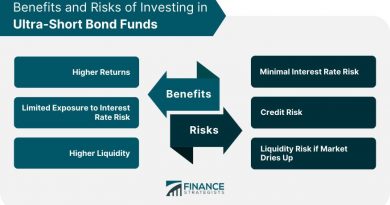London Stock Exchange LSE Definition History and Major Events
London Stock Exchange (LSE): Definition, History, and Major Events
What Is the London Stock Exchange (LSE)?
The London Stock Exchange (LSE) is the primary stock exchange in the United Kingdom and its largest. Originating over 300 years ago, the regional exchanges merged in 1973 to form the Stock Exchange of Great Britain and Ireland, later renamed the London Stock Exchange (LSE). The Financial Times Stock Exchange (FTSE) 100 Share Index, or "Footsie", is the dominant index, containing 100 top blue-chip stocks on the LSE.
The stock exchange is located in London. In 2007, it merged with the Milan Stock Exchange, the Borsa Italiana, to form the London Stock Exchange Group.
Key Takeaways
-The London Stock Exchange (LSE) is one of the oldest stock exchanges globally, the largest in Europe, and the primary stock exchange of the United Kingdom.
– The LSE rivals the New York Stock Exchange (NYSE) in terms of market capitalization, trade volume, access to capital, and trade liquidity.
– The "Big Bang" refers to the government’s deregulation of the London stock market on Oct. 27, 1986. This event led to a modernized electronic trading system and opened up the LSE to capital markets worldwide.
Understanding the London Stock Exchange (LSE)
London has long been one of the world’s leading financial cities, known as a hub for international trade, banking, and insurance. The history of the London Stock Exchange (LSE) dates back to 1698 when broker John Castaing began posting stock and commodity prices at Jonathan’s Coffee House, a popular meeting place for businessmen. Castaing called his price list "The Course of the Exchange and Other Things."
By 1801, it became clear that a formal system was needed to deter fraud and unscrupulous traders. Brokers agreed to a set of rules and paid a membership fee to belong to the exchange, paving the way for London’s first regulated stock exchange.
The London Stock Exchange (LSE) provides cost-efficient access to some of the world’s deepest and most liquid pools of capital through its primary markets. It is home to a wide range of companies and provides electronic equities trading for listed companies.
The LSE is the most international of all stock exchanges with thousands of companies from over 60 countries. It is the premier source of equity-market liquidity, benchmark prices, and market data in Europe. Linked by partnerships to international exchanges in Asia and Africa, the LSE intends to remove cost and regulatory barriers from global capital markets.
The LSE and the Big Bang
On Oct. 27, 1986, the U.K. government deregulated the London stock market, known as the "Big Bang". Deregulation introduced electronic trading, replacing traditional outcry trading and increasing trading volumes. This allowed the LSE to successfully rival other global exchanges, such as the New York Stock Exchange (NYSE).
The Big Bang was part of the government’s reform program to eliminate overregulation and encourage free-market competition. It introduced additional significant changes to the structure of the financial markets, including the elimination of fixed commissions on trades and the removal of the separation between companies that traded stocks and those that advised investors.
These changes increased competition among brokerage companies and led to a series of mergers and acquisitions. Another significant change allowed foreign ownership of U.K. brokers, opening London’s market to international banks.
The Main Market
The Main Market of the London Stock Exchange is one of the world’s most diverse stock markets, with companies spanning 40 different sectors. A listing on the LSE’s Main Market provides companies access to real-time pricing, deep pools of capital, benchmarking through the FTSE UK Index Series, and significant levels of media coverage, research, and announcements.
Companies can join the Main Market through different pathways, including:
Premium: The Premium segment applies only to equity shares issued by commercial trading companies. Premium listing issuers must meet the UK’s super-equivalent rules. These companies may have access to lower capital costs and investors seeking companies that adhere to high standards. A Premium listing offers the possibility of being included in one of the FTSE indices.
Standard: The Standard segment is open to equity shares, Global Depositary Receipts (GDRs), debt securities, and derivatives that meet minimum requirements. The overall compliance burden is lighter for companies with a Standard listing. A Standard listing helps companies from emerging markets attract investments from London’s large pool of available capital.
Specialist: The Specialist Fund Segment is designed specifically for high-growth, revenue-generating businesses, and highly specialized investment entities targeting institutional investors or professionally advised investors, respectively. This segment is for companies not eligible for a Premium or Standard listing but seeking funding for growth.
What Companies Does the London Stock Exchange Group Own?
Besides the London Stock Exchange (LSE) itself, the LSEG also owns FTSE Russell, Refinitiv, and LCH Clearing.
When Was the London Stock Exchange Established?
The LSE was formed in 1801 as London’s first regulated exchange.
What Are the Top Companies on the London Exchange?
1. AstraZeneca PLC
2. Shell PLC
3. HSBC Holding PLC
4. Unilever PLC
5. BP PLC
The Bottom Line
The London Stock Exchange (LSE) is the main stock exchange in the United Kingdom and one of the largest globally. It has a long history dating back to the 1600s and has evolved over time. The exchange lists many of the world’s largest companies, such as Shell, HSBC, and BP.



